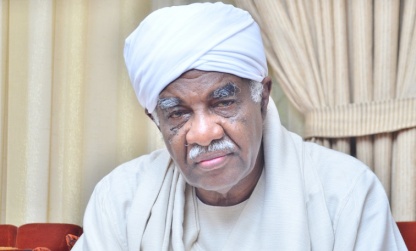Dialogue and Consensus on a New Social Contract

*Dr. Ibrahim Al-Amin*
… A truly Sudanese dialogue, rooted in national principles and the commitment to a civil state.
*A Message to General Abdel Fattah al-Burhan, Chairman of the Sovereignty Council:*
According to Ibn Khaldun, government is a natural social phenomenon, and its establishment is a social necessity. Initially, it is driven by the desire for power, characterized by a tendency toward dominance and tyranny. However, as society evolves, there arises a need to organize the relationship between the ruler and the ruled. This is a social truth that applies to any community. It implies that political power or the state emerges as a result of a social contract, a mutual concession between the authority and the individual, transitioning from a natural state to an organized society. This necessitates a review of all forms of social contracts in daily interactions and exchanges between society and the state, among individuals within the power structure, and among individuals themselves, which can be referred to as public spheres.
The crisis we are experiencing today is undeniable and indisputable. Evidence of this is the acknowledgment by those in power of its existence, as they speak of the failure of national governments to achieve stability and progress. The policies of the Inqaz (Salvation) regime exacerbated disparities, undermined social structures, and distorted the foundations of social cohesion. Here, fundamentally, dialogue becomes crucial to finding a way out of the societal crises and arriving at a new formula for governance based on a new social contract. A social contract is essential to affirm legitimacy. Legitimacy means representing the popular will and protecting individuals’ natural rights. In its modern understanding, legitimacy revolves around human rights and citizenship, focusing on individual freedom, social and political security, and the right to full political participation and equality.
Therefore, the dialogue must take place with an authority willing to make the necessary concessions to ensure the success of the dialogue, and with an opposition unified in its goal and capable of shouldering the responsibility of partnership during the transitional phase. A dialogue, in this sense, involves a critical review of all our past experiences and entering a new and different phase. A key feature of this new phase is the agreement on the social contract. The social contract, in its simplest terms, is an agreement aimed at establishing political power with the consent of the governed. According to Mohamed Abed Al-Jabri, the social contract means change and a return to natural rights. In the beginning, humans were free, possessing all rights, and each had the right to everything. Since everyone seeks to enjoy all rights, this inevitably leads to conflict and strife. Therefore, through reason, they devised an acceptable way to organize these rights in a manner that ensures security and justice.
Al-Jabri further explained that the idea of the social contract raises the issue of governance on two broader and deeper levels: civil rights versus natural rights enjoyed in the natural state, which are guaranteed by the state. The principle of the social contract is the foundation upon which the modern state is built, and it is continually evolving to become a fundamental criterion for good governance.
The social contract is an agreement crafted by the wise and rational members of society to build an integrated community based on justice and equality. It is a human endeavor adopted by many nations seeking to establish advanced human societies founded on social justice for individuals. In such societies, loyalty is to the state, not to an individual, as loyalty to an individual perpetuates dictatorship. The foundation of any social contract is the construction of a state of power where laws are based on people’s rights and freedoms.
*Dr. Ibrahim Al-Amin*



